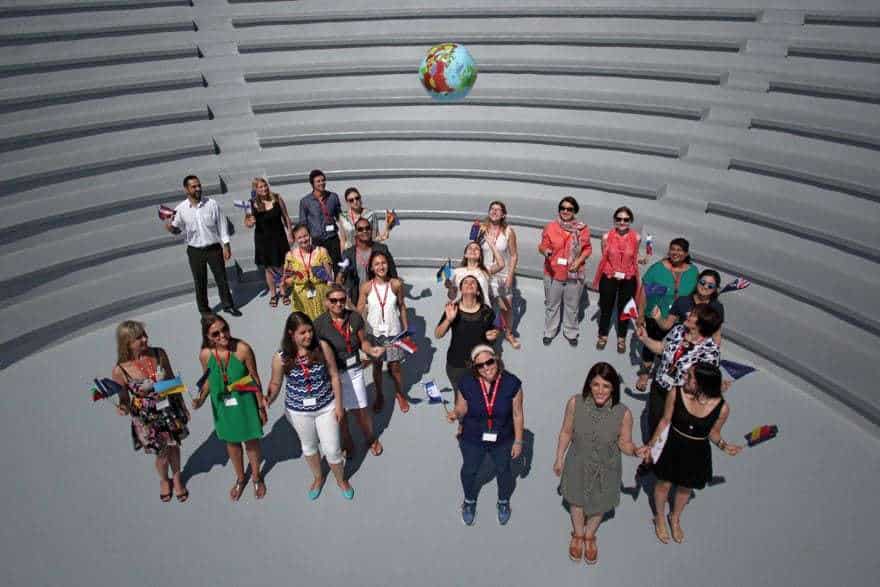The University of Nicosia had the honour to host the 2nd Erasmus+ International Staff Week which took place between 19 and 23 of June 2017.
This annual initiative was pioneered last year by the University of Nicosia, having then organised the 1st Erasmus+ International Staff Week taking place in Cyprus.
The 2nd Erasmus+ International Staff Week was a huge success and we were proud to welcome over 15 participants from 12 different countries including Russia, Israel, Serbia, Poland, Belgium and Austria among others. Participants had the unique opportunity to find out more about the University of Nicosia, network and share best practices with other colleagues working for the international or study abroad offices. A wide range of activities took place covering topics such as study mobility marketing and recruitment, application procedure and regulations, course compatibility process, transfer of academic credits, mandatory study mobility Vs optional study mobility, student traineeships, internationalisation strategies, success stories and best practices.
There were roundtable discussions, presentations, problem-solving cases and social events. The main objectives of the program were peer learning, networking, transfer of knowledge and sharing of experiences and best practices among colleagues. In the context of cultural activities, the participants had the opportunity to experience a guided tour of the divided city of Nicosia, a field trip to Larnaca and a night out at a traditional Cypriot tavern.
A particularly special part of the event was the celebration of the 30-year milestone of the Erasmus Program. Participants from around the world formed the number “30” for a group photo shoot at the University of Nicosia Open Amphitheatre. This was followed by a cocktail party where the cutting of the birthday cake also took place.
We would like to warmly thank all the participants who joined us for the 2nd Erasmus+ International Staff Week and we hope to have an even more successful one next year!
View the photo gallery here

